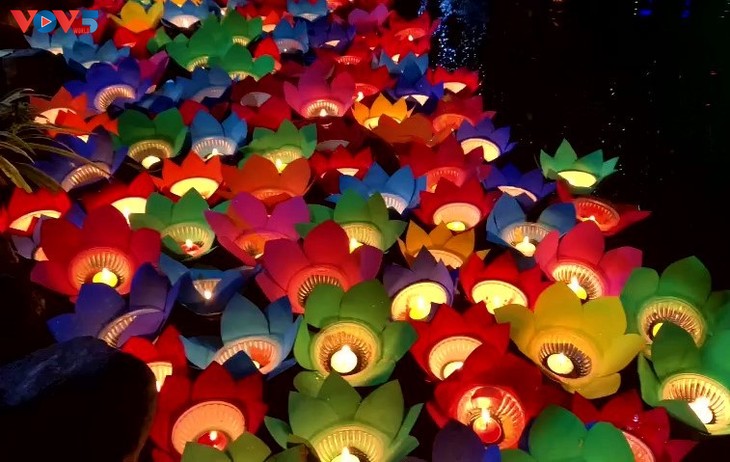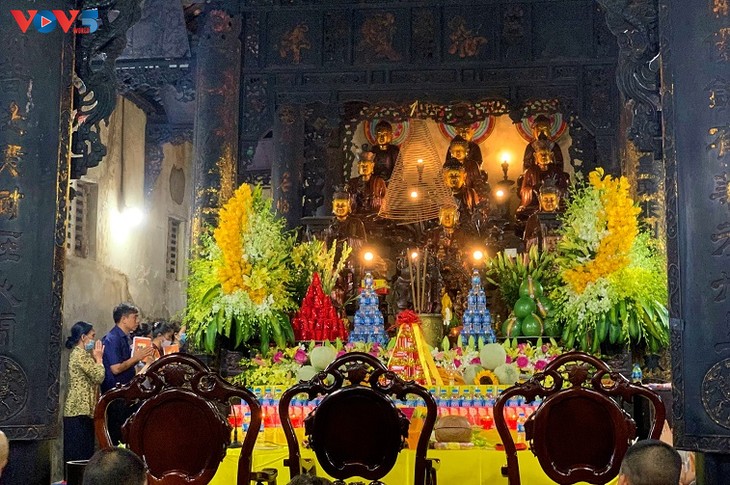(VOVWORLD) - In Vietnam, Vu Lan is a major festival celebrated in the 7th lunar month. It’s an occasion for children to express their gratitude to their parents, and Buddhist pagodas nationwide are crowded during this time.
 Lanterns are released during the Vu Lan festival (Photo: Le Chi/VOV5) Lanterns are released during the Vu Lan festival (Photo: Le Chi/VOV5) |
After a two-year slowdown due to the COVID-19 pandemic, normal religious activities like the festival of Buddha’s birthday and Vu Lan festival have resumed. Held annually on the 15th day of the 7th lunar month, known as ‘All Souls’ Day’, the Vu Lan Festival is Vietnam’s 2nd largest traditional festival after the Lunar New Year Festival (Tet).
Most Venerable Thich Minh Quang, Deputy Head of Tam Chuc pagodain Ha Nam province, said: "The Vu Lan Festival has been observed by Vietnamese people for thousands of years. On the full-moon day of the 7th lunar month, Buddhist followers express gratitude to their parents. According to Buddhist teaching, disrespecting one’s parents is the worst evil and respecting one’s parents earns the greatest merit. Vu Lan is an occasion for us to pay a debt of gratitude to our parents, our nation, our teachers, our friends, and others."
 At the Phuc Khanh pagoda (Photo: Le Chi/VOV5) At the Phuc Khanh pagoda (Photo: Le Chi/VOV5) |
According to the Vietnam Buddhist Sangha, each person owes gratitude to parents, grandparents, and ancestors. To show gratitude to national heroes who sacrificed for the nation, each person needs to become a good citizen. Paying gratitude to teachers means showing respect for anyone who delivers practical or moral knowledge to you. Every person should also pay gratitude to people like frontline doctors and soldiers who worked day and night during the COVID-19 pandemic.
The Vu Lan Festival continues throughout the 7th lunar month, but the main ceremony takes place on the 15th day, with rituals of paying gratitude to parents, a requiem ceremony for martyrs and ancestors, talks about paying gratitude, an incense burning ceremony, a lantern release ceremony, and art performances. The Vietnam Buddhist Sangha encourages Buddhist followers to engage in humanitarian activities.
At home, Vietnamese families prepare a feast to worship their ancestors and walking souls. The offerings usually include incense, candles, tea, fruits, sticky rice, cakes, and other foods. Some people release snails, fish, and eels.